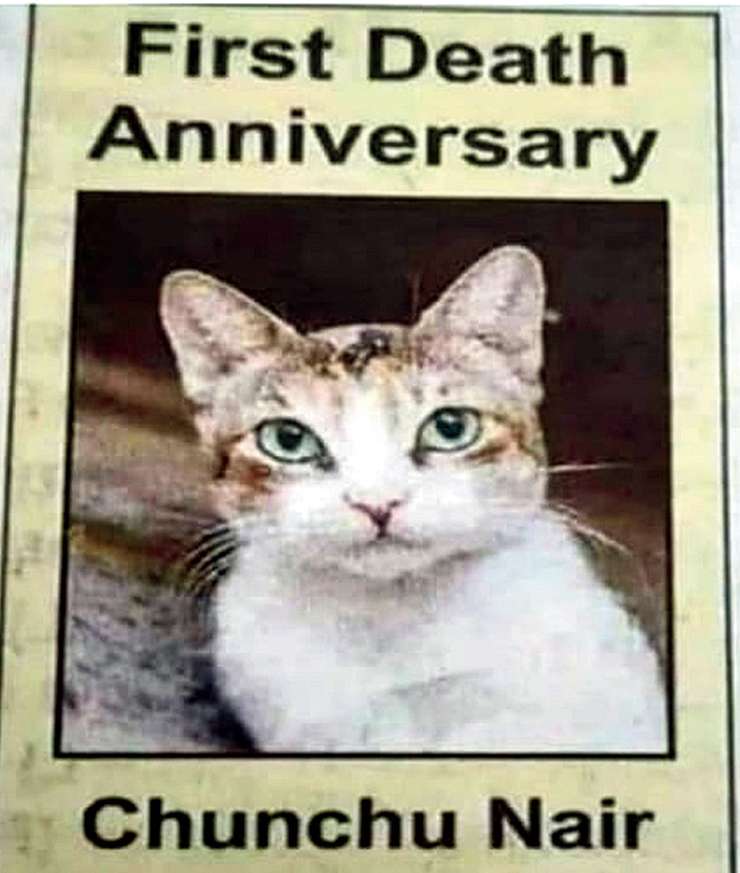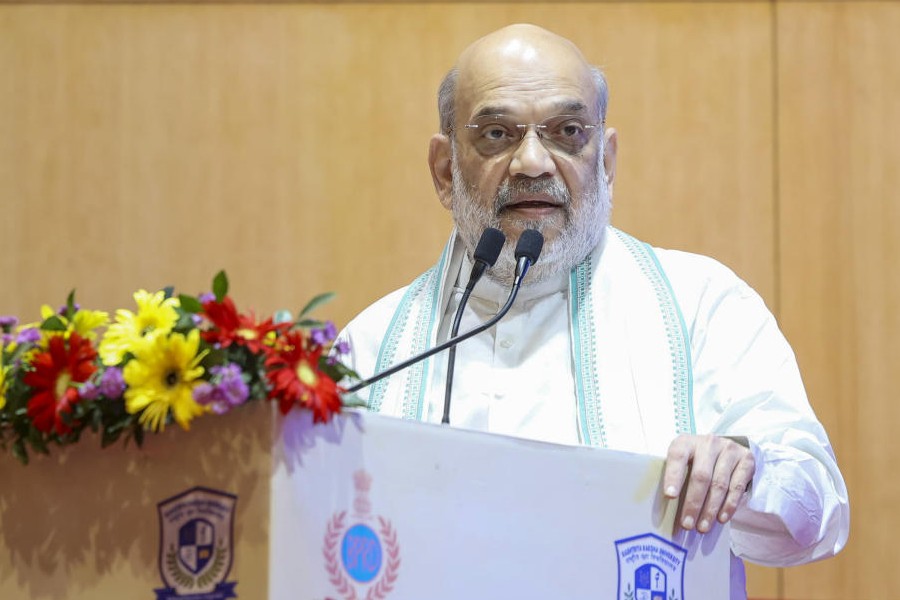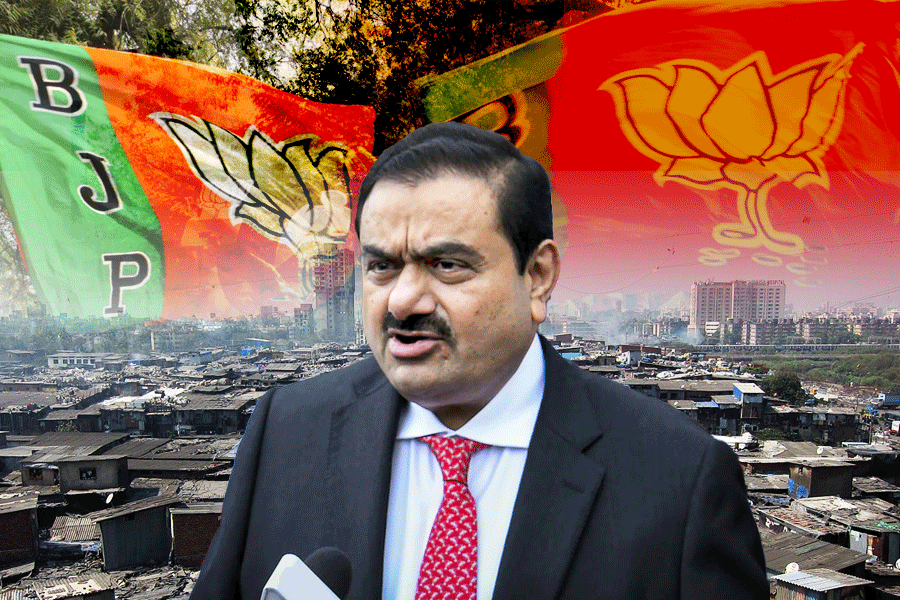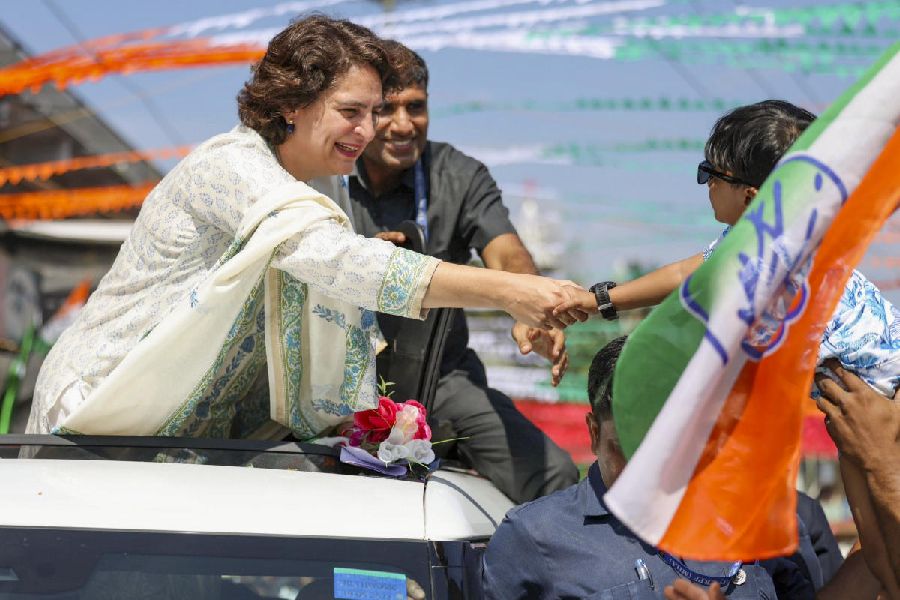Two Nair families that had migrated to Mumbai from their home state Kerala long back won large-scale media attention last week for different reasons.
One family, which released an obituary advertisement in a city newspaper marking the first death anniversary of their favourite pet cat, had said later that the trolls lampooning the cat’s Nair surname had pained them deeply.
Notwithstanding their pain and anguish, necessitated by daughterly affection, Chunchu Nair has already earned the dubious distinction of being the most trolled cat in the world.
The trolls had accused the Nair family of anthropomorphising everything related to them by beginning with adding a caste tag to the dead cat.
Others trolled the entire state of Kerala saying education was not just about keeping the BJP away.
The other Mumbai Nair family was the inheritor of Dr A.L. Nair, then proprietor of Powell and Co., which used to sell medical supplies and equipment.
He had donated two acres for a hospital campus in 1925 and started the well-equipped hospital in the memory of his mother Bai Yamunabai Laxman Nair, using his own resources.
Furthermore, he had donated required funds to run the hospital under government control.
Now the BYL Nair hospital is in the thick of controversy over the way senior doctors there allegedly forced a tribal doctor, Payal Tadvi, to commit suicide.
The peculiar situation in which the Nairs are catching the wrong headlines in the national media and getting trolled on social media is a major concern of not only the Nair diaspora but also the ground-level Nair chieftains of Kerala, who once took credit in stabilising and destabilising successive governments in spite of their Left or Right affiliations.
Contrary to the expectations of the Nair leadership in the state, the political outcome of its intervention in the recent Lok Sabha election is also turning counterproductive.
The new BJP government at the Centre and the existing CPM government in the state are accusing the community of giving all electoral advantages on a platter to the Congress.
Constituting 14 per cent of Kerala’s total population, the Nairs seem to have voted for Congress candidates in all the 20 seats in the state. The BJP accuses the 104-year-old Nair Service Society (NSS) and its senior pontiff Sukumaran Nair of backstabbing the so-called Hindu unity even in the crucial constituencies of Thiruvananthapuram and Pathanamthitta.
The party was of the view that RSS shakhas were stealthily taking away young Nair votes to deposit in the Sangh parivar kitty. Some exit poll surveys and opinion polls had even claimed that 85 per cent of young Nairs had voted in favour of BJP and NDA candidates.
The Sangh parivar had hoped that the Nairs would strongly turn in their favour in the post-Sabarimala situation in which chief minister Pinarayi Vijayan had blasted the community leadership
for taking an “obscurantist” position against women of reproductive age entering the shrine.
On its part, the NSS had organised several all-women rallies against the LDF government and its attempts to interfere in matters of faith.
It had also attempted to publicly denounce liberal women who found no fault in entering Sabarimala.
But in spite of all this, the Nairs and their chieftains appeared to have preferred the Congress and its alliance partners who had adopted a moderate stand on Sabarimala across the state.
In Thiruvananthapuram, where the main battle was between Nair candidates fielded by the Congress and the BJP, the NSS had preferred an English-educated urban elite Nair with transnational links and patronage.
So Shashi Tharoor won the constituency, dashing the hopes of the BJP’s Nair candidate, Kummanam Rajasekharan.
In the post-election scenario, leaders of both the BJP and the CPM minced no words in ridiculing Nair community leaders. With the Congress not gaining power at the Centre, the Nairs are remaining a group of losers.
Active social media users from among Nair youngsters are now terming the cat obit and hospital suicide issues as two isolated incidents with not even a distant connection with the community but propagated in a way to cause enormous harm to its already weakened morale.
Some of them feel that there is a concerted attempt by other community members to defame Nairs. It was not long ago when another forward community in the state, the Nambiars, had objected to attempts of the government to gain Geographical Indication (GI) registry for a local mango variety named Kuttiyattoor Mango.
Confined only to the Kuttiyattoor gram panchayat, the mango variety failed to win the GI tag when the Nambiar community objected saying that the actual name of the mango variety was Nambiar mango. To prove its claim, the community had even cited some mango trees of that species growing outside the panchayat.
Angry young Nairs now opine that the trolls are running behind a dead cat with the surname Nair, ignoring the caste tag of a rare mango variety.
Going by history, it was the Nair community that had joined hands with an equally powerful Catholic Church in Kerala to initiate a liberation struggle to topple the first elected government of Kerala led by the iconic communist leader E.M.S. Namboodiripad.
Since then, the NSS had always ensured entry for Nair leaders at key positions whether the state was being ruled by the Left Democratic Front or the United Democratic Front.
Incidentally, then Congress chief minister K. Karunakaran had projected himself as an iconic Nair leader.
Although the chaturvarna system treated the Nairs as Sudras, they always claimed they were Kshatriyas who used to be warriors and feudal lords.
The position of the Nairs in Kerala’s society was sort of similar to that of Samurais in Japan who also served as warriors and feudal lords.
The land was usually owned by the Nairs but was tilled by the agricultural castes such as the Pulayars. The Nairs in turn took the role of defence and administration.
The origin of the Nairs is a subject of great dispute. Some say they are direct descendants of the Aryans who married into Dravidian families, accounting for their fairer skin colour. Some say they are descendants of a warrior clan in Nepal. Others say they are natives of south India who were awarded the title Nair by the king.
The NSS had always maintained that no political party or its top leader could influence it. It had revolted against the Congress for the first time when P.V. Narasimha Rao was Prime Minister. When Rao arrived at the NSS headquarters at Perunna near Changanassery in Kottayam, he had offered floral tributes to NSS founder Mannathu Padmanabhan after reaching his samadhi.
The NSS had objected to the Congress, saying the security personnel who accompanied Rao had not removed their footwear before entering the samadhi.
In December 2002, Prime Minister A.B. Vajpayee had come for a 10-day holiday in Kerala’s Kumarakom, known for its backwaters, and made several attempts in vain to meet the then NSS chief Narayana Panicker.
According to NSS insiders, the organisation had supported the NDA in the 2014 election but stood with the CPM-led LDF during the last Assembly election.
The NSS may not represent all Nairs but it does have enough clout through their local units — named Karayograms — to secure control of temples.
In addition, the NSS props up Brahminical hegemony in Kerala, which is effected through temple control.
In spite of all this, the Nair community and its identity politics are finding themselves at a crossroads.











